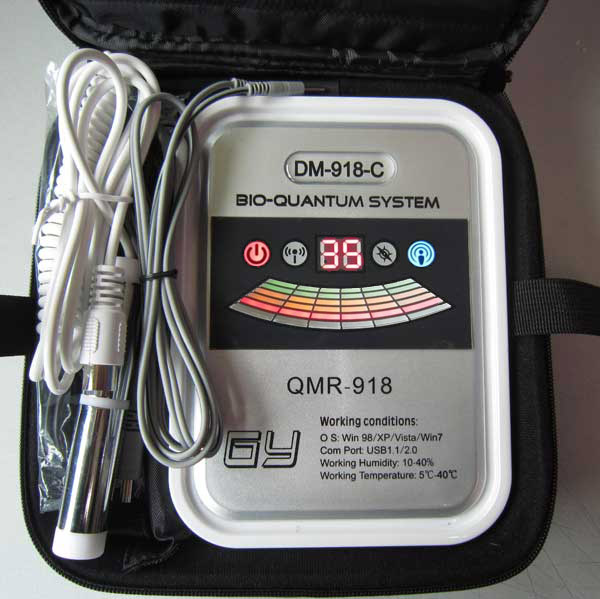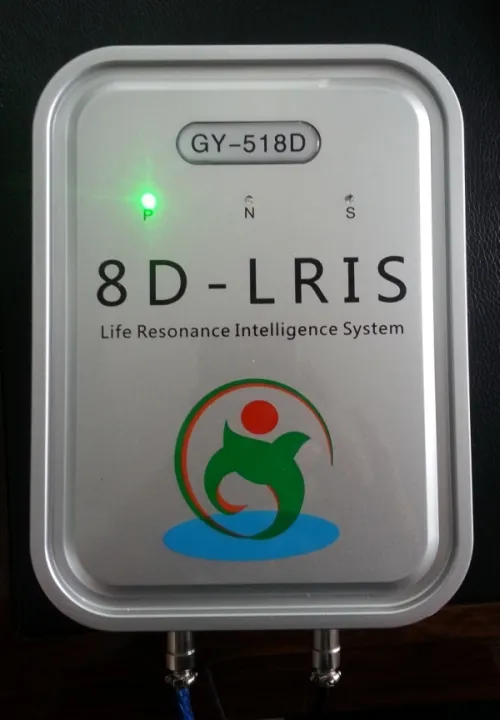Health Monitor WatchNZ$150.83Approx USD$89.95
Inside your body there is an amazing protection mechanism called the immune system. It is designed to defend you against millions of bacteria, microbes, viruses, toxins and parasites that would love to invade your body.
The immune system is a complex network of cells and organs that work together to defend the body against attacks by "foreign," or "non-self," invaders. This network is one of the body's main defenses against disease. It works against disease, including cancer, in a variety of ways. For example, the immune system may recognize the difference between healthy cells and cancer cells in the body and work to eliminate those that become cancerous.
Death in the cell occurs when the electrical potential of the cell membrane is reduced to zero. This was effectively demonstrated by Dr. Crile. An amoeba (a one celled animal) and an auto synthetic cell was used to demonstrate the vital function of electrical potential in all living cells. When an equal and opposite electrical charge to that of the amoeba reduced the electrical potential of its cell membrane to zero and astonishing change occurred comparable to death. Amoeboid movement was arrested and the amoeba became spherical in form. The outer cell membrane then ruptured and granules could be seen floating out into the surrounding fluid. Recharge your cell voltage Cancer may develop when the immune system breaks down or is not functioning adequately. To understand the power of the immune system, all that you have to do is look at what happens to anything once it dies. That sounds gross, but it does show you something very important about your immune system. When something dies, its immune system (along with everything else) shuts down. In a matter of hours, the body is invaded by all sorts of bacteria, microbes, parasites... None of these things are able to get in when your immune system is working, but the moment your immune system stops the door is wide open. Once you die it only takes a few weeks for these organisms to completely dismantle your body and carry it away, until all that's left is a skeleton. Obviously your immune system is doing something amazing to keep all of that dismantling from happening when you are alive.
"There is a philosophy which says that we live in an ocean of bacteria and viruses.. it is not the microorganisms that cause disease, it is an inefficient immune system. We see the evidence of this truth constantly around us. One person in an office gets a very bad cold. The one sitting next to him doesn't get a sniffle. Certainly both were exposed to the same microorganisms. What is the difference? It is in the differences between their immune systems, isn't it? "
Lets look at a few things that effect your immune system In todays world where pollution is becoming rampant, our food is being Geneticaly engineered and poisoned with chemicals and additives, the air we breath has far less oxygen than 300 years ago and electromagnetic pollution is increasing expotentialy, our immune systems are taking a beating, more and more people are dying of heart disease and cancer etc.. Okay we mostly all know this,,hopefully :) But what about the more sublte things like: Stress Physical signs A sedentary lifestyle is a type of lifestyle with no or irregular physical activity. A person who lives a sedentary lifestyle may colloquially be known as a couch potato. It is commonly found in both the developed and developing world. Sedentary activities include sitting, reading, socialising, watching television, playing video games, and computer use for much of the day with little or no vigorous physical exercise. A sedentary lifestyle can contribute to many preventable causes of death Health effects Lack of sleep Most people don’t get enough sleep. We are a society that burns the candle at both ends, a nation where people stay up all night to study, work, or have fun. However, going without adequate sleep carries with it both short- and long-term consequences.In the short term, a lack of adequate sleep can affect judgment, mood, ability to learn and retain information, and may increase the risk of serious accidents and injury. In the long term, chronic sleep deprivation may lead to a host of health problems including obesity, diabetes, cardiovascular disease, and even early mortality.Source Sleep and Health Dr. Orfeu Buxton describes how animal and human studies suggest that adequate sleep is crucial for a long and healthy life. Sleep and Health videoWhy Sleep Matters video Monitor your Heart rate Measuring changes in your resting heart rate over time can give you an indication of your heart heath.."At rest, heart rates in the rather wide zone of 60-100 beats per minute (bpm) are deemed within the average range," If you are learning to use stress management techniques, you might use a heart rate monitor to see whether your techniques (for example, practicing deep breathing) helped your heart rate go down. People with heart problems can monitor their heart rate to know whether their heart rate is related to certain symptoms (such as lightheadedness), Exercise causes your heart rate to increase because your heart has to work harder to get more oxygen to your muscles. How quickly your heart rate returns to its normal pace is a good measure of cardiac fitness,
8DNLS
|
Your IP Address is: 3.148.241.79
Copyright © 2025 Altered States. Powered by Zen Cart






